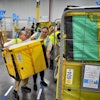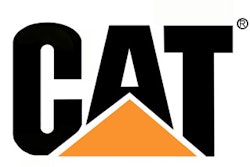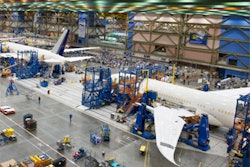This article first appeared in IMPO's April 2013 issue.
Manufacturers and distributors have been stepping in to help the welding industry tackle the skill gap.
According to a 2011 article in Welding & Gases Today (the publication of GAWDA, the Gases & Welding Distributors Association), the welding industry is poised for significant growth over the next decade. But with well over 200,000 available welding jobs predicted, the industry is not exactly jumping for joy. In fact, this key area of metalworking has long been known for the skill gap it consistently faces. So what’s the problem, who will solve it, and – perhaps most importantly – how?
Educating Tomorrow’s Workforce
“The image of welding and manufacturing as a whole, as presented by the media, traditionally has not been a positive one,” explains Lincoln Electric’s Deanna Postlethwaite. “Additionally, the Baby Boomer generation is at retirement age and, similarly, the average age of a welder today is mid-50s.”
Companies with a large footprint in the welding industry, like Lincoln Electric, have examined these variables and attempted to generate solutions to help address them. One way has been through helping to attract a fresh new generation of young welders through youth group initiatives (4-H, scouting, Skills USA, etc); union and trades support initiatives; and educational organization and teacher prep support. Lincoln has also partnered with the Boy Scouts of America® to launch a new welding merit badge to focus on teaching welding to a younger audience.
Lincoln has also utilized virtual reality-based training in order to appeal to a younger audience. Postlethwaite heads up this unit and cites how the use of Lincoln VRTEX® 360 welding simulators has been a good way to get young people excited about this skill set.
According to Lincoln, welding simulators allow students to learn more quickly. This increases welding school throughput and opens up more time to teach additional topics. Skilled welders cannot be trained on simulators alone and need real arc time to fine tune their welding skills; however, VR Welding Training can provide a fun and beneficial educational experience. Lincoln has been heavily involved with sponsoring the innovative AWS (American Welding Society) Careers in Welding trailer. This mobile exhibit, outfitted with five VRTEX simulators, travels across the country to various events as a way to recruit and educate young people on the potential career opportunities that welding provides. “Students who visit the trailer are introduced to products and technologies that are designed to assist, support, and engage the students that will make up the manufacturing workforce of the future,” says Postlethwaite.
Leaders of the Pack
For Lincoln Electric, part of the solution lies in the hands of manufacturers – both at the supplier level, as well as the end users in need of these qualified workers.
“It’s important for companies, especially manufacturing companies, to jump in and support education as they identify their need for skilled labor and the right skills for workers to be productive,” says Postlethwaite. “Manufacturing can also champion a change in the mind set about careers in manufacturing and to assist in rebuilding this sector’s workforce.”
Adds Lincoln welding education specialist, Jason Scales, “Lincoln Electric’s unique position in the market allows us to observe the trends both on a national and global level. By keeping an eye on emerging trends, we are able to develop programs to help ensure that educators and trainers have the best-possible tools to respond to needs quickly.”
Postlethwaite and Scales also note that encouraging the industrial workforce of tomorrow goes well beyond attracting them with hands-on experiences. Lincoln Electric also offers many tools directly to educators and industry trainers to help encourage the growth of the welding workforce in the classroom and on the shop floor. These tools include such things as:
Free materials to support welding instructors.
The James F Lincoln Foundation (www.jflf.org), a non-profit organization dedicated to educating the public about the art and science of arc welding.
Award programs to support welding education.
Teacher Observer program and Instructor Training programs aimed at ensuring the latest technology and methodology are shared and provided to welding instructors.
Development of training for industry to aid in bridging the gap with current employees.
“Supporting education and industry is fundamental to ensuring two things: first, that our country has a skilled workforce and, second, that we are a viable and productive manufacturing country equipped to thrive in the competitive global climate,” says Postlethwaite. “As a U.S. manufacturer ourselves, supporting the development of the right skills and the right talent in aspiring young welders also ensures we have them in our own company’s workforce.”
For more on welding skill development, visit www.explorewelding.com.























